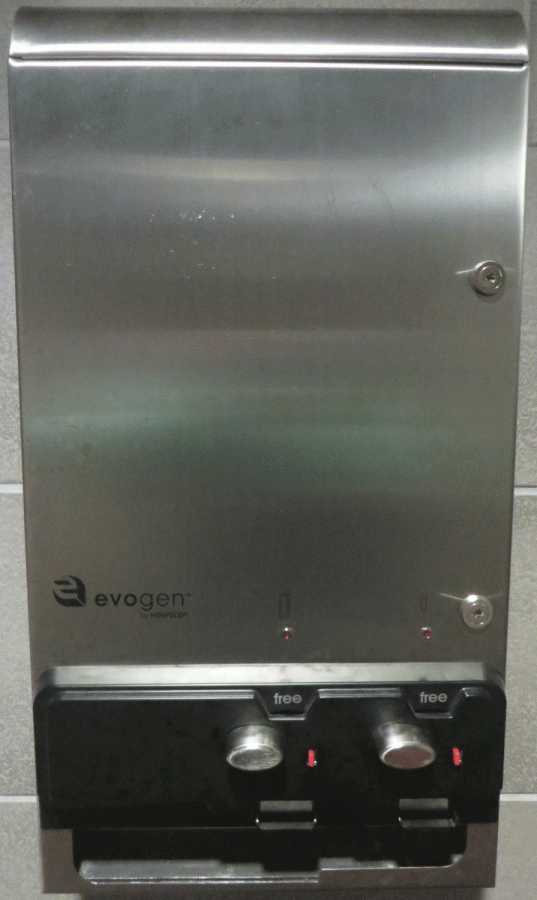Free Feminine Product Pilot Begins at Colgate
Throughout this semester, several students have been spearheading a project to implement free feminine hygiene products in bathrooms across the Colgate campus.
Sophomore Hannah Adkins is one of the leaders of this project.
“Although there were representatives from [Student Government Assocation] – myself, Tolu Emokpae and Derek Baker – it came mostly from women across campus, Laia Alonso, President of Planned Parenthood and WMST intern Cate Barber, who wanted to support other women on campus,” Adkins said.
The project is still a work in progress. The pilot program implemented dispensers in the Coop, the Ho Science Center and Case Library over the summer.
Senior Molly Diamondstein believes that this is an important initiative.
“It’s about time that women are not punished financially for a natural process,” Diamondstein said.
Students at Brown University are supporting the same initiative, for the reason that Diamondstein gave. They assert that these products are a necessity, not a luxury. Adkins hopes to continue expanding the project at Colgate as well.
“The plan is to have all of the gender-neutral bathrooms be equipped with dispensers by the end of the project,” Adkins said.
The project was originally funded and supported by President Casey, but he has recently moved the responsibility to the Dean of the College, Paul McLoughlin.
President Brian Casey offered his insight as to how this project was set into motion.
“I met with a group of students last year who described this real need, women finding themselves in need of feminine hygiene products away from their dorm rooms or residences. As they reported, the situation can prove to be not merely distracting, but challenging,” Casey said.
Although the project has started, there is still a lot of work to be done.
“It seemed like an obvious thing to see how we could address this. So I reached out to our Buildings and Grounds crew to see if we could provide dispensers for students. We have placed a number of free dispensers around campus. My sense is that it is working, though we need to better address replenishment of supplies. I suspect we will need to further refine the program. It often takes a bit of time to get new efforts exactly right. I’m happy we are taking further steps to make improvements, ” Casey said.
McLoughlin has taken on oversight over the project and offered his insight into the program from a logistical and administrative standpoint.
“[A group of students visited my office hours] looking for support,
additional funding and someone in the administration with whom to work on this request. Since that time, I have been gathering additional information – both from the students who made the request, Student Government leadership and others on campus about the pilot program and about an expansion (including dispenser options, number and locations on campus, funding sources for the initial installation and a new, ongoing expense for the University’s budget). Because the initial pilot didn’t consider all of these questions, I will need to get answers to determine the feasibility and implications of the request,” McLoughlin said.
SGA Communications Director junior Curtis Reeves spoke on the subject.
“While the matter of funding is still debated, SGA has made a verbal commitment to subsidizing this project with its own funds if the Administration’s Budget is not sufficient,” Reeves said.
Adkins also pointed out that many other universities have been doing this in some capacity.
At Emory, the project also began with a grassroots movement. A sophomore opened a petition to see how many people would use free tampons and in one week, it garnered over 900 responses.
According to Insider Higher Ed, students at colleges across the country are demanding free feminine products and launching similar programs amongst some of them are The University of Arizona, Brown University, Columbia University, Reed College and University of Minnesota.
This movement is also occurring beyond college campuses. In July, state lawmakers passed legislation to provide free menstrual products in all public schools, shelters and correctional facilities in New York City.
In March of 2016, Barack Obama became the first president to bring this into conversation when he questioned why 40 states tax tampons as a luxury item.
Though it is still a work in progress at Colgate and across the country, this movement represents a step towards prioritizing women’s health.
Contact Maddie Veronis at [email protected].







